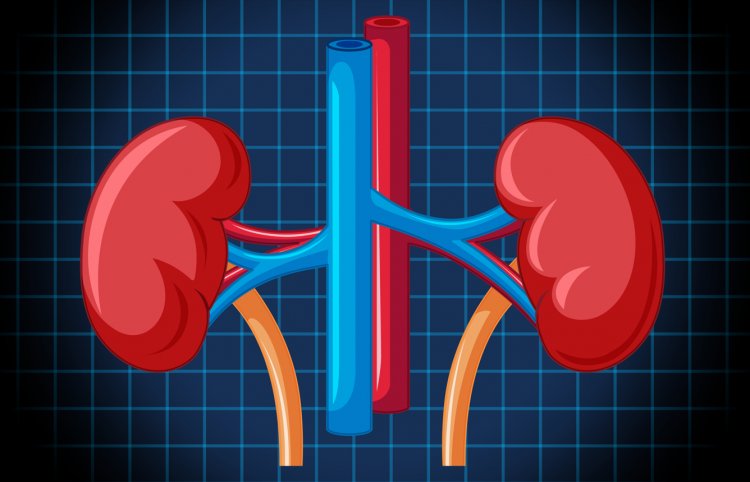Unveiling Dialysis: Types, Benefits, and How It Works
Dialysis is a critical medical procedure used to manage kidney failure, enabling patients to maintain a balance of fluids and electrolytes in their bodies. This comprehensive guide explores the types of dialysis, the detailed procedures involved, the benefits it offers, and important considerations for patients undergoing this essential treatment.

Types of Dialysis
Hemodialysis
Process:
Hemodialysis involves the use of an artificial kidney (dialyzer) to filter blood outside the body. Blood is pumped from the patient's body into a dialysis machine, where it passes through a specialized filter (dialyzer membrane). Waste products and excess fluids are removed from the blood and discarded into a dialysis solution (dialysate). The cleaned blood is then returned to the patient's circulation.
Procedure Details:
Hemodialysis sessions typically take place at a specialized dialysis center and last between 3 to 5 hours per session. Patients usually undergo hemodialysis multiple times per week to maintain adequate kidney function.
Peritoneal Dialysis
Process:
Peritoneal dialysis utilizes the peritoneum, a membrane lining the abdominal cavity, as a natural filter. A catheter inserted into the abdomen allows for the infusion of dialysate fluid. This fluid absorbs waste products and excess fluids from the bloodstream through osmosis. After a dwell period, the used dialysate is drained from the abdomen and replaced with fresh dialysate in a cyclic manner.
Types:
There are two main types of peritoneal dialysis: Continuous Ambulatory Peritoneal Dialysis (CAPD), which requires manual exchanges throughout the day, and Automated Peritoneal Dialysis (APD), where a machine performs the exchanges overnight.
Procedures and Treatment Considerations
Access for Hemodialysis:
Patients undergoing hemodialysis require vascular access, which is typically established through an arteriovenous fistula, graft, or central venous catheter. The health of these access sites is crucial for effective treatment and to minimize the risk of infection.
Fluid and Electrolyte Management:
Both hemodialysis and peritoneal dialysis require careful monitoring of fluid intake and adherence to dietary restrictions to maintain electrolyte balance and prevent complications.
Dietary Restrictions:
Patients on dialysis must follow a diet low in potassium, phosphorus, and sodium to reduce the workload on the kidneys and manage fluid levels effectively.
Benefits of Dialysis
Improved Quality of Life:
Dialysis helps alleviate symptoms associated with kidney failure, such as fatigue, nausea, and swelling, thereby enhancing overall quality of life.
Regulation of Body Chemistry:
By removing waste products and excess fluids from the bloodstream, dialysis helps maintain proper electrolyte levels and blood pressure, reducing the risk of complications.
Life-Sustaining Treatment:
For individuals with end-stage kidney disease (ESRD), dialysis is a life-saving treatment that provides essential kidney function support while awaiting a kidney transplant or as a long-term treatment option.
Challenges and Complications
Treatment Adherence:
Successful dialysis treatment requires strict adherence to treatment schedules, including dialysis sessions, medication regimens, and dietary guidelines.
Potential Complications:
Complications of dialysis include infections at access sites, blood clotting, fluctuations in blood pressure, electrolyte imbalances, and cardiovascular issues. Regular monitoring and prompt medical intervention are essential to manage and minimize these risks effectively.
Dialysis remains a cornerstone therapy for individuals with kidney failure, offering vital support by replacing lost kidney function. Advances in dialysis technology continue to improve treatment outcomes and patient comfort, underscoring its importance in modern healthcare. Despite its challenges, dialysis provides hope and extended life expectancy for many patients worldwide, highlighting its critical role in managing chronic kidney disease.
Disclaimer
The information provided in this article is for educational purposes only and should not be considered medical advice. If you have any health concerns or are experiencing symptoms, it is important to consult with a healthcare professional, such as a doctor or clinic, for proper diagnosis and treatment. Always seek the advice of your doctor or other qualified health provider with any questions you may have regarding a medical condition. Do not disregard professional medical advice or delay in seeking it because of something you have read in this article.
#dialysis #kidneyfailure #hemodialysis #peritonealdialysis #renalhealth #healthcare #medicaltreatment #ESRD #kidneydisease #chronicillness
What's Your Reaction?





















